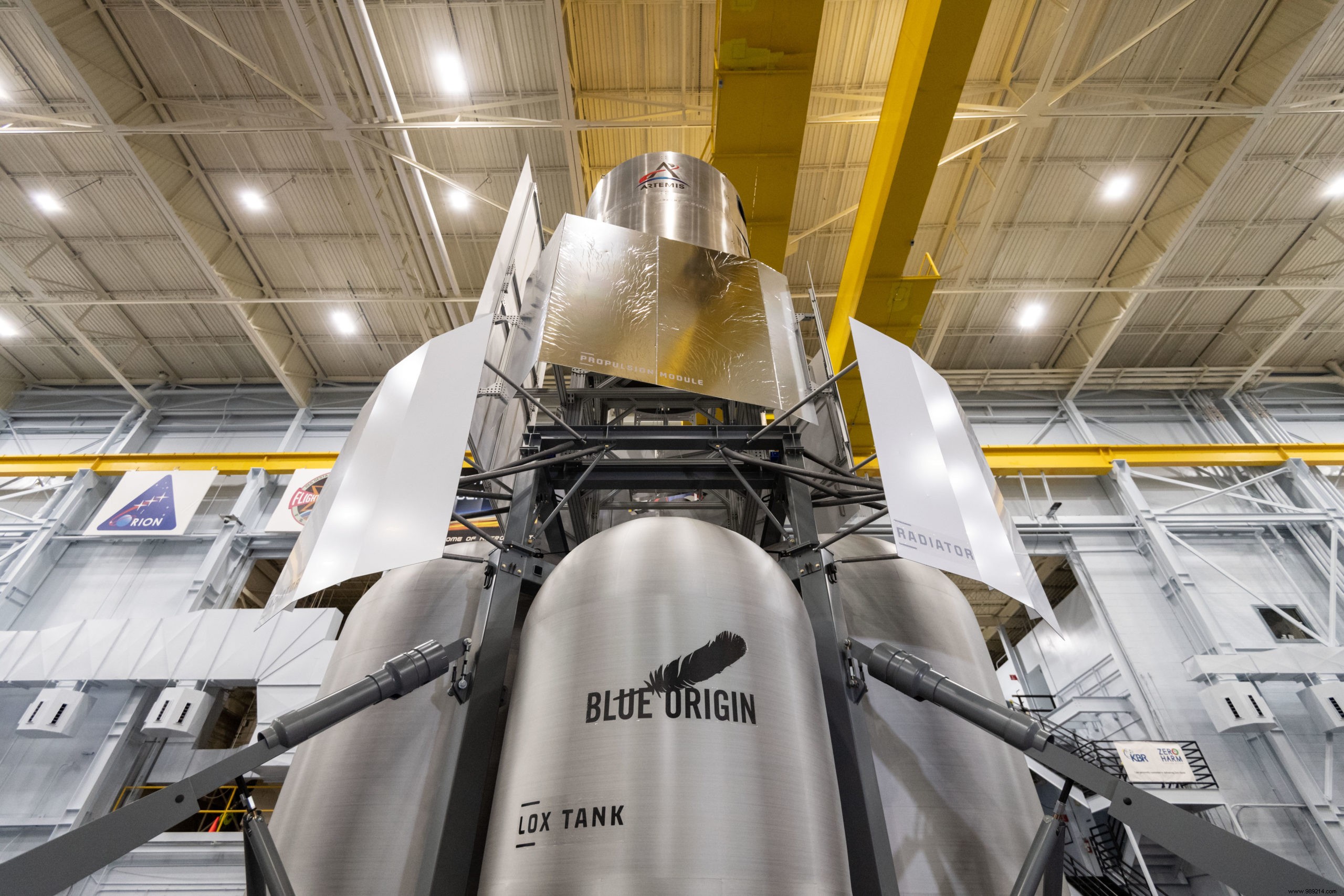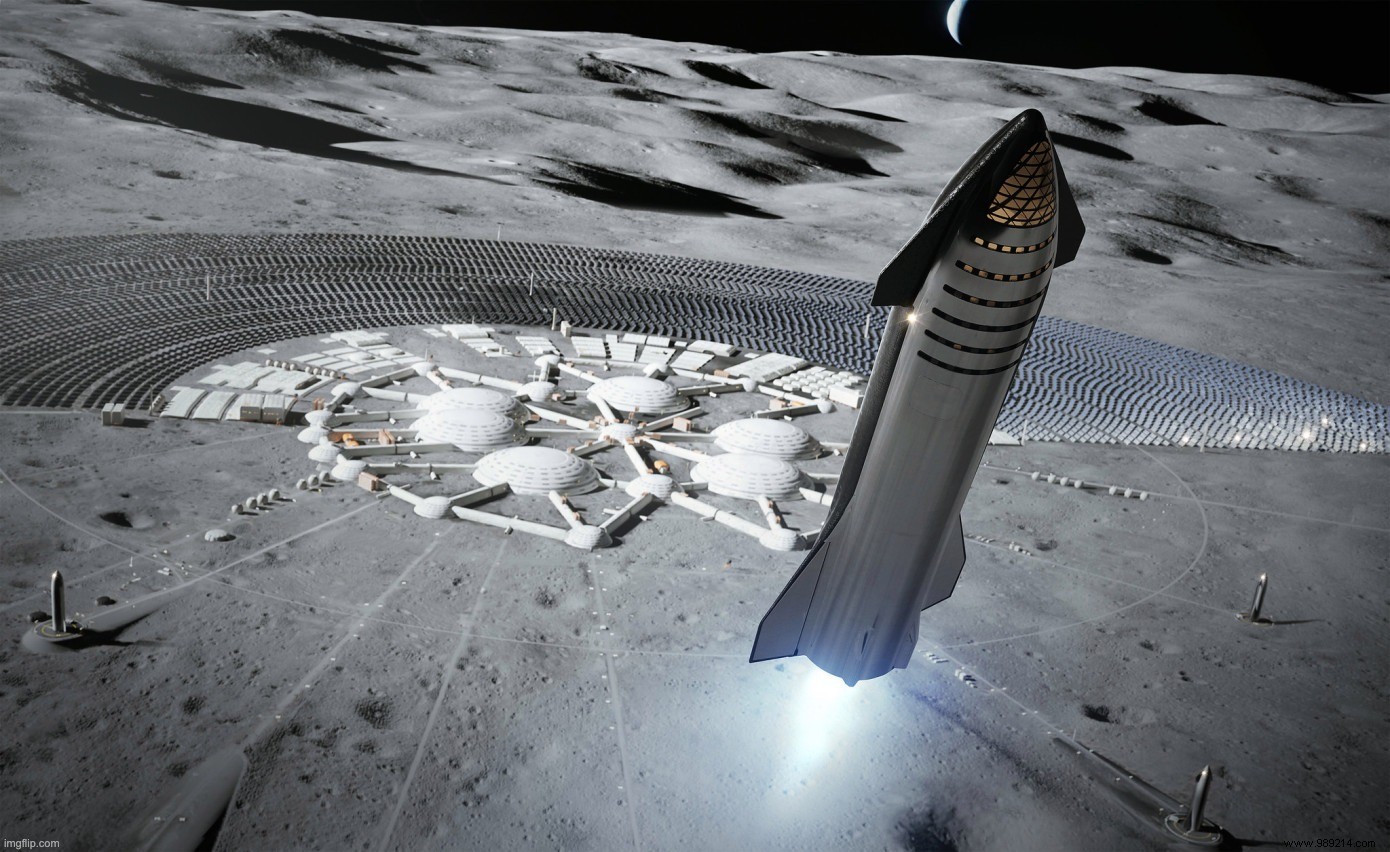On Monday, Blue Origin, the rocket company founded by Jeff Bezos, filed a protest with the U.S. Government Accountability Office challenging NASA's choice to select only SpaceX to supply its next lunar lander.
Last year, NASA announced the awarding of three contracts to Blue Origin, Dynetics and SpaceX to begin the development of landing systems allowing the next humans to land on the Moon from 2024 as part of the Artemis program. A few days ago, the American agency finally turned to SpaceX (and only SpaceX). And inevitably, the decision does not pass with the competition.
Blue Origin indeed filed a fifty-page protest with the U.S. Government Accountability Office on Monday. “The dispute underscores that, whatever the outsized ambitions of Mr. Musk and Mr. Bezos for the future, the current fortunes of their space companies and the ability to generate the profits necessary to achieve their grandiose dreams depend business concerns like competing for government contracts “, notes the New York Times.
Bob Smith, CEO of Blue Origin, said NASA's decision was based on "erroneous assessments" of the proposed deals. According to him, the American agency would have "underestimated the advantages of the Blue Origin proposal and "minimized the technical challenges of SpaceX's project" .
Furthermore, the CEO of Blue Origin adds that in any case, NASA should have stuck to its repeatedly expressed desire to select not one, but two businesses. However, in fact, NASA has actually nothing officially promised . In the end, the agency only chose SpaceX, and for several (good) reasons.

First of all, for the current fiscal year, Congress has provided only $850 million to NASA , a quarter of what the agency had requested for the development of lunar landers. According to Kathy Lueders, associate administrator at NASA, this limited budget is partly what led the agency to choose only one company.
Estimated at six billion dollars , the offer offered by Blue Origin was more than double the price of SpaceX. On the other hand, according to Bob Smith, NASA would have spoken and agreed with SpaceX to negotiate its price downwards. However, the agency would not have entered into any similar negotiations with Blue Origin . "We have not had the opportunity to revise our price, and that is fundamentally unfair “, said Mr. Smith.
In addition to these limited budgets, SpaceX has also submitted a version of its Starship vehicle that will eventually be able to carry many more people in one more trip to be fully reusable .
Of course, the Starship is also technically the most demanding of the vehicles on offer. To carry out its missions on the Moon and beyond, engineers will indeed have to develop the technology to supply its vessels with methane and liquid oxygen in low Earth orbit. Despite everything, NASA is well aware that by betting on the Starship, it is giving itself the means to multiply missions at low cost.

Elon Musk's company has also distinguished itself in recent years. Its Falcon 9 rocket now wins the majority of commercial satellite launch contracts, while its Crew Dragon capsule has already transported three crews to the ISS.
Blue Origin is lagging behind. Successfully tested, its New Shepard spacecraft is however only intended for short suborbital journeys, while the maiden flight of its New Glenn rocket, currently under development, will operate only in 2022 (at least).
Kathie Lueders said a follow-up competition to build later landers would still be open to Blue Origin, Dynetics and other companies. Bob Smith then declared that Blue Origin would submit future offers, but not without a hint of annoyance. In the meantime, the Government Accountability Office has 100 days to make a decision on the protest.